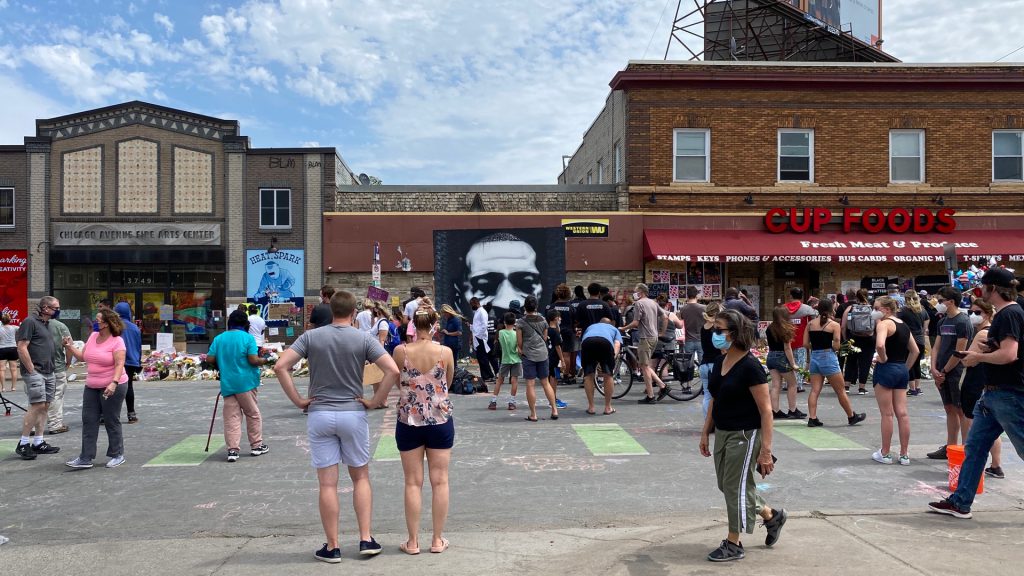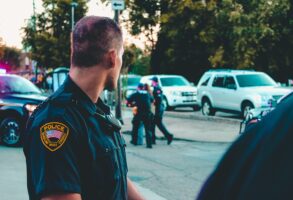
Published June 18, 2020
It’s an unaccustomed feeling for me to be in step with public opinion, but as the nation is undergoing a reconsideration of race and policing, I find myself in unfamiliar territory—in the majority.
For many years, I was skeptical about accusations of racism in the criminal justice system. Yes, I knew that blacks comprised only about 12 percent of the population yet represented 33 percent of the prison population. But those data alone did not prove that police are racists or that courts are tougher on blacks than others. The relevant criterion is not the percentage of the population, but the percentage of the criminal population, and when you consider the higher rates of offending among African Americans, the seemingly disproportionate rates of incarceration make sense. According to the Bureau of Justice Statistics, blacks committed 52 percent of all homicides between 1980 and 2008.
Well, some countered, if you look at who winds up on death row, you can see the racism at work. Less than half of murder victims in the United States are white, yet a 2003 study found that 80 percent of inmates on death row had killed white people. I wasn’t convinced. It might be evidence of racism, or it could be that when people kill others of their same race, they are more likely to know them. These could be crimes of passion and therefore less likely to draw the death penalty. According to the Bureau of Justice Statistics, between 2001 and 2005, nearly 78 percent of murdered blacks were killed by other blacks, and nearly 70 percent of murdered whites were killed by other whites. According to BJS data tracking victims and offenders, blacks were responsible for nearly 22 percent of violent offenses in 2018, though they represented only 12 percent of the population.
I thought Michael Brown’s death at the hands of a cop in Ferguson was tragic (and I was offended by the crude language officer Darren Wilson used toward a civilian), but I believed then and continue to believe that the “Hands Up, Don’t Shoot” narrative that arose from that episode was inaccurate. The Obama Department of Justice investigation found that the forensic evidence supported the officer’s version of events.
My views have changed though, bit by bit, over the past half-decade. I’ve begun to doubt my previous convictions. Was it the sheer accumulation of cases? Eric Garner was choked to death. Yes, he was resisting arrest, but for what? For selling “loosies”—untaxed cigarettes. Freddy Gray, 25, was taken into custody in Baltimore. Handcuffed but not belted to his seat, police took him for what they called a “rough ride.” Somehow, he snapped his spine in the police van. He lapsed into a coma and died a week later.
Walter Scott was stopped for a defective taillight. After initial questioning and a quick scuffle, Scott fled the officer (perhaps fearful because he owed back child support). Officer Michael Slager shot Scott in the back, killing him. He filed a police report saying that Scott had grabbed his Taser weapon, but a bystander video showed that after the shooting, Officer Slager ran back to the site of the initial scrap, picked something up and dropped it next to Scott’s body.
Botham Jean, an accountant for PriceWaterhouseCoopers, was eating ice cream in his own apartment when a Dallas cop entered and shot him in the heart. She lived downstairs and had mistakenly entered the wrong apartment. Philando Castile was pulled over for a traffic stop. His girlfriend and her 4-year-old daughter were with him. He told the officer that he had a gun (for which he was licensed). The cop thought he might be reaching for the gun and shot him.
Laquan McDonald was a 17-year-old with PCP in his system and a knife in his hand. But contrary to the police report suggesting that McDonald was shot after lunging at police, the autopsy showed that he was hit 16 times, 9 of them in the back.
Like Botham Jean, 26-year-old Breonna Taylor was shot in her own home after police broke in during a “no knock” raid. The emergency-room technician was in bed with her boyfriend, Kenneth Walker, when the police burst into the home. Having no idea who the intruders were, Walker pulled his gun and fired once, striking an officer in the leg. The police shot Taylor eight times, killing her. After the encounter, Walker phoned 911, saying “somebody kicked in the door and shot my girlfriend.” Yes, “somebody.”
Ahmaud Arbery was out jogging and was tracked and trapped by a two-car posse that included a former law enforcement officer. The last words Arbery heard before he died were “f—— n—–.”
Rayshard Brooks was drunk and passed out in his car at the Wendy’s drive through. Police were called, and they seemed to be handling the situation professionally and courteously, until Brooks grabbed the officer’s taser, ran, and then turned to fire it at the police. He’s dead.
And, of course, there’s the depraved murder of George Floyd, crushed to death under the knee of a pitiless cop while three others stood by.
I know there are videos of whites being shot by police. This footage of Daniel Shaver’s death is horrifying, as is this of Tony Timpa’s. And, as John McWhorter argues, it’s likely that we haven’t seen those videos because they don’t fit the narrative of racist white cops.
And yet, I think of the testimony of black men that they are routinely pulled over and hassled for “driving while black.” Is that their imagination? Are they exaggerating? Is former Republican National Committee chairman Michael Steele not to be credited when he reports how frequently he’s been pulled over? Can we dismiss Neil DeGrasse Tyson, who recalls a meeting at which one man after another recounted his experiences of being stopped by police, only to reveal that it was a conference of black physicists? What about Senator Tim Scott? He was stopped seven times in one year driving in his own neighborhood. He was detained by a security guard on Capitol Hill though he was wearing his member’s pin. When he gestured to it, the officer said “The pin I know—you I don’t.”
There’s data about those traffic stops. A study looked at 95 million traffic stops by 56 different police agencies between 2011 and 2018. They found that blacks were far more likely than whites to be pulled over—but the disparity declined at night, when it’s harder to detect the race of the driver. A 2019 Los Angeles Times report found that 24 percent of black drivers were searched, compared with 16 percent of Latinos, and 5 percent of whites, yet contraband was more commonly found among whites.
A study published by the National Bureau of Economic Research in February 2020 looked at responses to 2 million 911 calls in two cities. It found that white officers were five times as likely to use force, including deadly force, in minority neighborhoods as African-American officers.
There’s a lot more where that came from.
Some conservatives object that African-American men are far more likely to die at the hands of other African-American men than at the hands of police and demand to know where the outrage is about deaths in Chicago. But criminals are criminals. The police, by contrast, are hired, trained, and armed by all of us. They are sworn to protect and to serve. There is no equivalence between the acts of Derek Chauvin and a Chicago gang member.
I’ve long believed that police have a difficult job and deal with the worst of the worst on a daily basis. I’m grateful for their protection. And there’s a lot of crying wolf in the race business. (See Smollett, Jussie.) But I’ve come to believe that mistreatment of African Americans is not a myth and is not even uncommon. I’m glad that so many white and other Americans, by marching with their black fellow citizens, and by what they tell pollsters, are signaling their dismay at these outcomes. People’s minds can change. Mine did.
Mona Charen is a nationally syndicated columnist, a senior fellow at the Ethics and Public Policy Center, a contributor to The Bulwark, and host of The Bulwark’s Beg to Differ podcast.








